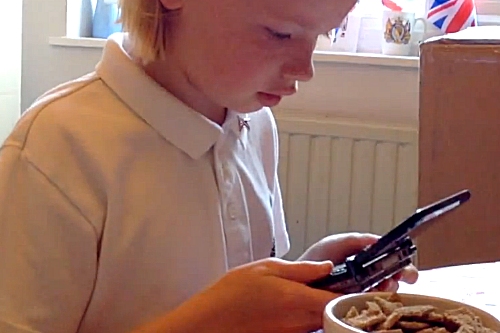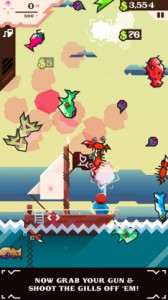Video Games Create Ever Changing Worlds

Families can be put off video-games because they see them as overly competitive or combative experiences. However, there are many games that offer a wide range of ways to play.
A good example here are video-games that offer an experience that evolve over time. These attract players by offering a constantly changing world that is different each time you visit it. Sim City is a popular game in this genre where players take charge of the running of a simulated city. Because the city develops each time they play it offers fresh game-play and challenges in an ongoing fashion.
Other games use a real time clock that elapses during play at effects the environment. Fuel, for example, is a racing game on the Xbox 360 where players could explore the world in real time. The cycle of the sun (and moon) was used so that the game-world was experience at different times of the day. Then there is Ridiculous Fishing Smartphone game that only lets you catch certain fish at certain times of day.
[caption id="attachment_1572" align="alignright" width="168"] Rediculous Fishing (iPhone)[/caption]
Rediculous Fishing (iPhone)[/caption]
Animal Crossing is a franchise that brings these elements together, and is another popular example for families. It is a simulated island experienced in relation to real-world time, date and season. This means that Animal Crossing is different depending on the time of day you play it. The game uses this to restrict access to special items you are collecting that can only be found at certain times. It does the same thing with the date and seasons, so that you can only find certain wild/insect-life in your island at certain times of the year (in the real world).
Playing a game like this in a family soon becomes the subject of breakfast table speculation as different family members discuss how their experiences differ of the same game. This works well in Animal Crossing as multiple members of a family can live in the same island and work with the same set of resources. Should they decide to set-up a separate island to play in, the family can then pay a visit to each others worlds.
With Animal Crossing New Leaf (PEGI 3) soon to be released on the 3DS I was interested to discover how this new game would fare in a family setting. To that end I've been tracking one family's experience with the game, which has been an intriguing and eye opening experiment:
What has been most interesting here is to see how different families (and family members) play games in different ways. While the mum from the videos is more intent on progressing the town, the daughter seems happy to spend time enriching the fabric of her town and the son is eager to meet as many inhabitants as possible.
Even with these different experience though, they are all playing in the same town. What they want to get from the game, combined with the time of day they play and the other players from the family, results in a play-time unique to them.
These types of simulation games can be a good way to start gaming, as well as inject a bit of an educational and conversational element into your family's gaming diet.
You can follow how the family got on in their Animal Crossing New Leaf video series.




